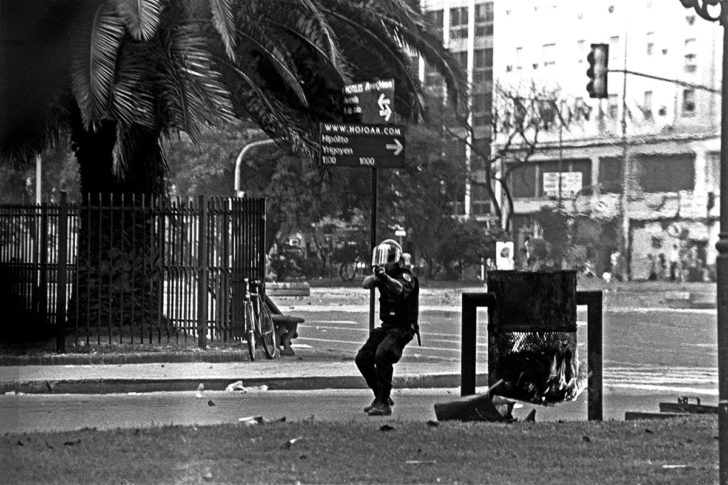On December 20, 2001, the government of President Fernando De la Rúa ordered a violent crackdown on protesters in the streets of Buenos Aires. As a result of this order, Gastón Riva, Carlos Almirón, Diego Lamagna, Gustavo Benedetto, and Alberto Márquez were murdered, and many others were injured. Almost 23 years later, after a prolonged legal battle, the Supreme Court upheld the convictions of former Secretary of Security Enrique Mathov and former Chief of the Federal Police Rubén Santos by lower courts. Thus, the Court confirmed that political officials bear criminal responsibility for the consequences of repression orders and that political leadership of security forces must be held accountable for the outcomes of operations and the use of force.
This decision sets an unprecedented legal standard in Argentina and across Latin America at a time when we are witnessing increasing state violence against people who take to the streets to protest. In democratic societies, the rights to assembly and protest are fundamental, and the use of force by state security agencies has strict limits. Violations of these limits entail responsibility not only for the direct perpetrators but also for the authorities overseeing these operations.
Mathov and Santos were found guilty in 2016 by the Federal Oral Tribunal No. 6 for the deaths of Riva, Almirón, and Lamagna, and the injuries sustained by 20 others during the protests in Plaza de Mayo amidst a state of emergency declared by De la Rúa. The verdict was appealed, and the Federal Court of Cassation modified the sentences, reducing them in 2021 to 4 years and 3 months for Mathov and 3 years and 6 months for Santos. Following the Supreme Court’s ruling, Federal Oral Tribunal No. 6 ordered their arrests.
The Cassation Court’s ruling had concluded that “the lethal outcomes (deaths and injuries) verified on December 20, 2001, and caused by Federal Police officers, are a direct result of the risk generated by Mathov in ordering the police operation and then failing to supervise it, despite his obligations.” The Cassation Court had further emphasized that political leaders must “prevent excesses by the security forces.”
Two other high-ranking officials—Raúl Roberto Andreozzi, head of the Metropolitan Security Superintendency, and Norberto Gaudiero, head of the General Directorate of Operations for the same force—were also convicted in that trial, but both passed away before the Supreme Court’s decision.
The judicial investigation into the deaths and injuries on those two days was marred by extreme delays and a failure to fully reconstruct the events. As a result, the judiciary failed to send a clear message about the implications of declaring a state of emergency and authorizing the police to ruthlessly suppress the social unrest triggered by the crisis. Furthermore, there was no substantial judicial investigation into the many illegal detentions that occurred during this period, impeding the determination of criminal responsibility for those events. Nor did the judiciary advance in identifying or investigating the officers who fired live ammunition at protesters.
In 2011, ten years after the repression, the government issued a resolution limiting the use of force to prevent the recurrence of incidents like those of December 19 and 20, 2001. However, that resolution was later revoked by the anti-protest protocol issued by Security Minister Patricia Bullrich, just days after taking office in December 2023.
Photo: SubCoop

